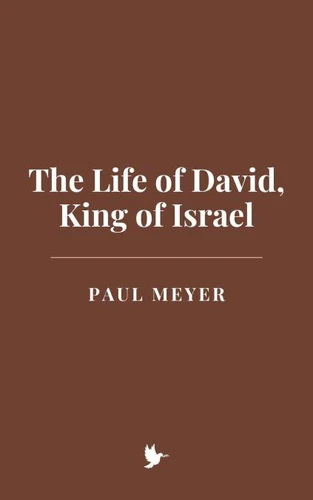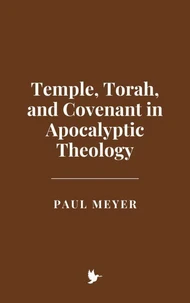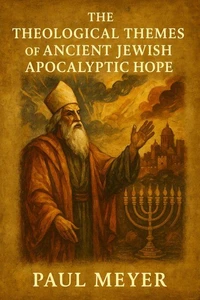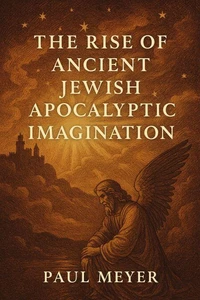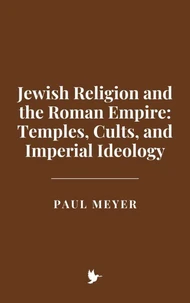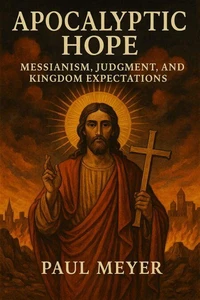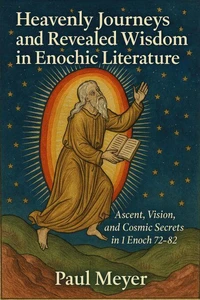The Life of David, King of Israel
Par :Formats :
Disponible dans votre compte client Decitre ou Furet du Nord dès validation de votre commande. Le format ePub est :
- Compatible avec une lecture sur My Vivlio (smartphone, tablette, ordinateur)
- Compatible avec une lecture sur liseuses Vivlio
- Pour les liseuses autres que Vivlio, vous devez utiliser le logiciel Adobe Digital Edition. Non compatible avec la lecture sur les liseuses Kindle, Remarkable et Sony
 , qui est-ce ?
, qui est-ce ?Notre partenaire de plateforme de lecture numérique où vous retrouverez l'ensemble de vos ebooks gratuitement
Pour en savoir plus sur nos ebooks, consultez notre aide en ligne ici
- FormatePub
- ISBN8230396826
- EAN9798230396826
- Date de parution15/01/2025
- Protection num.pas de protection
- Infos supplémentairesepub
- ÉditeurIndependently Published
Résumé
David's story begins in the quiet hills of Bethlehem, a small and humble town nestled within the territory of Judah. It was an unlikely place for the future king of Israel to rise. The biblical narrative situates Bethlehem as a place rich with history and divine purpose, having already served as the setting for significant events, such as Ruth and Boaz's story. The genealogical connection between David and his ancestors speaks to the providence that undergirded his life before he was even born.
David's family line stemmed from the tribe of Judah, fulfilling the prophetic words of Jacob in Genesis 49:10, that the "scepter shall not depart from Judah."David was the youngest of eight sons born to Jesse, a descendant of Ruth and Boaz. While his brothers took part in the more prominent affairs of the household, David was assigned the lowly task of tending the sheep-a role that was seen as mundane and insignificant by societal standards.
Yet, it is precisely in this obscurity that David's character was shaped. Biblical scholars and historians often point to the pastoral setting as critical to understanding David's later achievements. The solitude of the wilderness afforded him ample time to develop a contemplative spirit, one deeply attuned to the voice of God. It was here, amidst the hills and valleys of Bethlehem, that David began to pen the psalms that would one day become the backbone of Israel's worship.
The image of the shepherd, so central to David's identity, becomes a powerful metaphor throughout Scripture, representing care, guidance, and sacrificial leadership.
David's family line stemmed from the tribe of Judah, fulfilling the prophetic words of Jacob in Genesis 49:10, that the "scepter shall not depart from Judah."David was the youngest of eight sons born to Jesse, a descendant of Ruth and Boaz. While his brothers took part in the more prominent affairs of the household, David was assigned the lowly task of tending the sheep-a role that was seen as mundane and insignificant by societal standards.
Yet, it is precisely in this obscurity that David's character was shaped. Biblical scholars and historians often point to the pastoral setting as critical to understanding David's later achievements. The solitude of the wilderness afforded him ample time to develop a contemplative spirit, one deeply attuned to the voice of God. It was here, amidst the hills and valleys of Bethlehem, that David began to pen the psalms that would one day become the backbone of Israel's worship.
The image of the shepherd, so central to David's identity, becomes a powerful metaphor throughout Scripture, representing care, guidance, and sacrificial leadership.
David's story begins in the quiet hills of Bethlehem, a small and humble town nestled within the territory of Judah. It was an unlikely place for the future king of Israel to rise. The biblical narrative situates Bethlehem as a place rich with history and divine purpose, having already served as the setting for significant events, such as Ruth and Boaz's story. The genealogical connection between David and his ancestors speaks to the providence that undergirded his life before he was even born.
David's family line stemmed from the tribe of Judah, fulfilling the prophetic words of Jacob in Genesis 49:10, that the "scepter shall not depart from Judah."David was the youngest of eight sons born to Jesse, a descendant of Ruth and Boaz. While his brothers took part in the more prominent affairs of the household, David was assigned the lowly task of tending the sheep-a role that was seen as mundane and insignificant by societal standards.
Yet, it is precisely in this obscurity that David's character was shaped. Biblical scholars and historians often point to the pastoral setting as critical to understanding David's later achievements. The solitude of the wilderness afforded him ample time to develop a contemplative spirit, one deeply attuned to the voice of God. It was here, amidst the hills and valleys of Bethlehem, that David began to pen the psalms that would one day become the backbone of Israel's worship.
The image of the shepherd, so central to David's identity, becomes a powerful metaphor throughout Scripture, representing care, guidance, and sacrificial leadership.
David's family line stemmed from the tribe of Judah, fulfilling the prophetic words of Jacob in Genesis 49:10, that the "scepter shall not depart from Judah."David was the youngest of eight sons born to Jesse, a descendant of Ruth and Boaz. While his brothers took part in the more prominent affairs of the household, David was assigned the lowly task of tending the sheep-a role that was seen as mundane and insignificant by societal standards.
Yet, it is precisely in this obscurity that David's character was shaped. Biblical scholars and historians often point to the pastoral setting as critical to understanding David's later achievements. The solitude of the wilderness afforded him ample time to develop a contemplative spirit, one deeply attuned to the voice of God. It was here, amidst the hills and valleys of Bethlehem, that David began to pen the psalms that would one day become the backbone of Israel's worship.
The image of the shepherd, so central to David's identity, becomes a powerful metaphor throughout Scripture, representing care, guidance, and sacrificial leadership.

